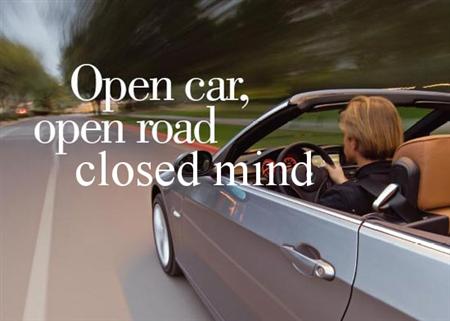A strange title for a post, yet it’s actually a mnemonic for remembering the actinide chemical elements in the periodic table, as thought up by Simon Phillips Norton, a Cambridge mathematics genius, who is somewhere along the autistic spectrum line. The simple clarity of a phrase like “Cars bring complete enslavement for mankind, not liberation” doesn’t come easy to one raised in the bubble of Industrial Civilization, yet is so obvious when you think about it that it leaves you in no doubt that the whole concept of unversal individual motorised transportation is nothing more than a massive con being played out upon billions of people every waking hour of their day.
I’m not fooled.
Enslavement is an odd concept: keep a tiger in a cage all of its life and it will continue to pace the invisible boundaries of that cage even when provided with a larger enclosure; it will feed only on what it is provided with and it will behave only in the way it has been taught to behave. The tiger is enslaved by humans. Humans are enslaved by the machine.
I want to visit an area of great beauty; wild and relatively untouched by humans, I have no desire to harm it, only to see and connect with it — it is not near where I live. The wild has been taken from me and only remains in tiny pockets far away from where I live. I have no choice, I have to travel. To travel to this place I have little choice but to drive; the railways take me part of the way, buses maybe a little nearer, but in a car I can reach this place easily — surely the car is delivering me with freedom.
It is nothing like that. My dependency on the car to take me to a place that Industrial Civilization has taken from my doorstep is enslavement, entrapment, pure brainwashing into accepting the situation for what it is. So many aspects of civilization drive us into pre-determined boxes: the student, the voter, the worker, the consumer, the driver — and yet we feel no qualms about accepting our place because we are told we live in a free society. Play by the rules and you can live as you want to, as long as you live as the system wants you to. As a citizen, there is no difference.
There is a simple test of enslavement; one that we can all do. It is this: see how far you can change an aspect of your life before you run up against a barrier of dependency — before the elastic rope that binds you to the Culture of Maximum Harm begins to drag you backwards into its grinding cogs. We have seen this with transport; try doing the same with food — only buy local produce and you immediately find it’s impossible without changing your diet; a diet that has largely been predetermined by the society you have been brought up in. Grow and rear your own and you find you don’t have enough land, you are hemmed in by the walls and fences of dense habitation. Try and set up collective growing and you are faced with apathy — a sea of blank-faced pod people who are enslaved by the culture meets you. Why would you want to do that? We have food in supermarkets.
There is also a simple way to remove that enslavement, something I go into detail in A Matter Of Scale, but which can be summarised by the example of the car. Not only are we dependent on cars, but the car is dependent on a further chain of processes and products without which it collapses upon itself as a broken pillar of civilization. The car needs roads to drive upon — roads that must be built, maintained and kept moving; a complex and always-on fuel supply infrastructure; all of the materials that go into manufacturing the car — the plastic, metals, fabrics, glass, ceramics and more; the servicing, repair and rescue operations; vehicle sales and advertising which ensure that the fleet is renewed and turnover is maximised, alongside all of the administrative, legal and insurance operations that are a staple of the motoring experience. A great chain of dependency which, if broken, will bring down the car-culture.
Civilized humans have been enslaved by the lies of the motor industry and all of the other industries that have benefitted from its success, but by turns the motor industry has become totally dependent on so much else — so many things that make it vulnerable to collapse.
It’s all in your hands really; I think you know what to do.
